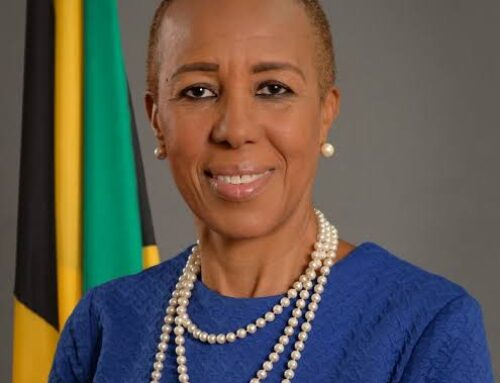
THE ANALYSTS: Stock split the right move for Palace
Business Journalist David Rose says a stock split may be what Palace Amusement needs to attract new investors.
Palace Amusement’s board of directors reportedly met on Tuesday to discuss a possible stock split.
A stock split is often done when there is a low supply of shares in the market, or the price has become expensive to investors.
Speaking on Taking Stock with Kalilah Reynolds, Rose noted that Palace Amusement currently has the lowest number of shares of any company on the Jamaica Stock Exchange.
“Palace only has 1.4 million ordinary shares; there’s no other company on the JSE with an issue share base that small,” he said.
“Of that, less than 200,000 shares are “free-floating” and some of these shares are held by older shareholders who potentially have lost their stock certificates or have passed away,” he added.
A stock split will increase the number of shares in the company by dividing the current shares by a specific number. For example, after a 2-for-1 split, each investor will own double the number of shares, and each share will be worth half as much.
Palace, which trades on the Main Market of the JSE, soared 150% last week to close the week at $1552 after news of the possible stock split. The stock had been trading around the $600 range since November.
This is a massive falloff from its pre-COVID price when it traded close to $3000. Palace’s stock has struggled since the pandemic as the company was heavily impacted by COVID-19 restrictions.
Rose said the consideration of a stock split shows that the company is aware of its small issue base and the need for new investors.
“They might be looking at the fact that although they’re having great movies, people are not going back to the theaters and their higher costs are really putting a strain on the company,” he said.
He pointed out that Palace was already in a tight monetary position when the pandemic started.
“Remember when COVID hit, Palace had just finished building out their Portmore location and had no cash,” he noted, adding that the company has since had to take out loans to keep its operations afloat.
The company’s results for the first quarter, which ended in September, show a net loss of $53 million.
“So, the company needs to raise capital and a lot of people have sentimental interest in Palace,” Rose said.
“Lets say they do a 1000:1 stock split, then those 200,000 free floating shares could potentially become 2 million shares and the stock becomes a lot more tradeable,” he explained.
“They could structure it in such away that it becomes more available to the general public and creates an opportunity for a new strategic investor,” he continued.
He said that while the stock split is a good idea, Palace may also need to consider a change in management to help guide the company through this period.
Previously on Taking Stock, Senior Research Analyst at JN Group, Fay Samuels, noted that Palace’s marketing is lacking, and the company tends to be behind in spotting and capitalising on global trends.
“The business has potential but might need new management to guide it in the right direction,” Rose said.
WATCH THE SEGMENT HERE
Ask The Analysts
The Cast David Rose Business Writer, Observer Leovaughni Dillion Investment Research & Sovereign Risk Analyst at JMMB Group
R.A. Williams to list on JSE
The Cast Audley Reid CEO R.A. Williams Distributors Julian Morrison Founder, Wealth Watch JA










Leave A Comment